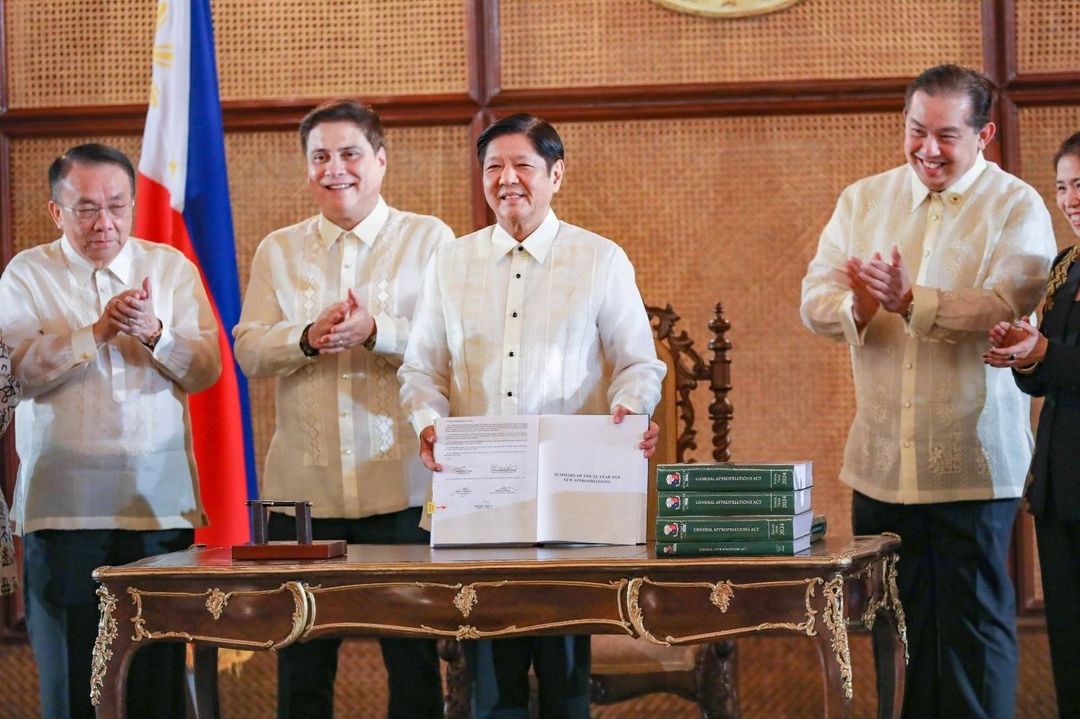Marcos vetoes 2 provisions of 2024 nat'l budget on DOJ fund, career executive service
At A Glance
- President Marcos has vetoed sections of the 2024 General Appropriations Act (GAA) pertaining to the Department of Justice (DOJ) revolving funds and implementing the National Government's Career Executive Service Development Program.
President Marcos has vetoed sections of the 2024 General Appropriations Act (GAA) pertaining to the Department of Justice (DOJ) revolving funds and implementing the National Government's Career Executive Service Development Program.

In his letter to House Speaker Martin Romualdez, the President said he had to veto the so-called “DOJ Revolving Fund” as no law allowed the DOJ to establish a revolving fund.
“It may be emphasized that the service fees sought to be charged and collected are to be imposed upon complaints and affidavits filed with the National Prosecution Service, and petitions for review filed before the DOJ, when, in fact, such pleadings are filed with the said agencies by virtue of their jurisdiction vested by law,” he said.
The President added that the charges were not from business-type activities within the contemplation of the General Provision on Revolving Funds in the GAA, which permits the constitution of a revolving fund from receipts derived from business-type activities of agencies to be utilized for the operational expenses of such business-type activities.
Citing a Supreme Court (SC) pronouncement, he said that “inappropriate provisions” were unconstitutional provisions and amended other laws.
“Because clearly, these kind[s] of laws have no place in an appropriations bill,” Marcos said.
These are matters of general legislation more appropriately dealt with in separate enactments, he added.
President Marcos also vetoed Section 38 under the General Provisions on the "Implementation of National Government's Career Executive Service Development Program (NGCESDP).”
According to the President, the Section “does not relate to any particular appropriation in this Budget.”
He noted that Presidential Decree (PD) No. 336, dated November 14, 1973, amending Part I, Article IV, Sections 2 and 5 [G], of the Integrated Reorganization Plan approved under Presidential Decree No. 1, dated September 24, 1972), which is considered a substantive law, created the Career Executive Service Board (CESB).
“PD No. 336 further delineated the functions of the CESB as the governing body of the Career Executive Service (CES) and the Development Academy of the Philippines is tasked to prepare a CES program appropriate and necessary for the organization and operation of the CES, and in consultation with the CESB, initiate and continue to implement the aforesaid program,” Marcos said.
“Moreover, Section 8 (2), Chapter 2, Subtitle A, Title I, Book V of Executive Order (EO) No. 292, s. 1987 (Administrative Code of 1987), also considered a substantive law, expressly prescribed that entrance to the third level career service position shall be prescribed by the CESB.”
The President signed into law Republic Act (RA) No. 11975, or the General Appropriations Act for Fiscal Year (FY) 2024, on Wednesday, Dec.20.
The P5.768-trillion national budget, equivalent to 21.1 percent of gross domestic product (GDP), was designed to sustain the country's high-growth trajectory and is the key to achieving the Administration's goals for the country’s economic transformation.